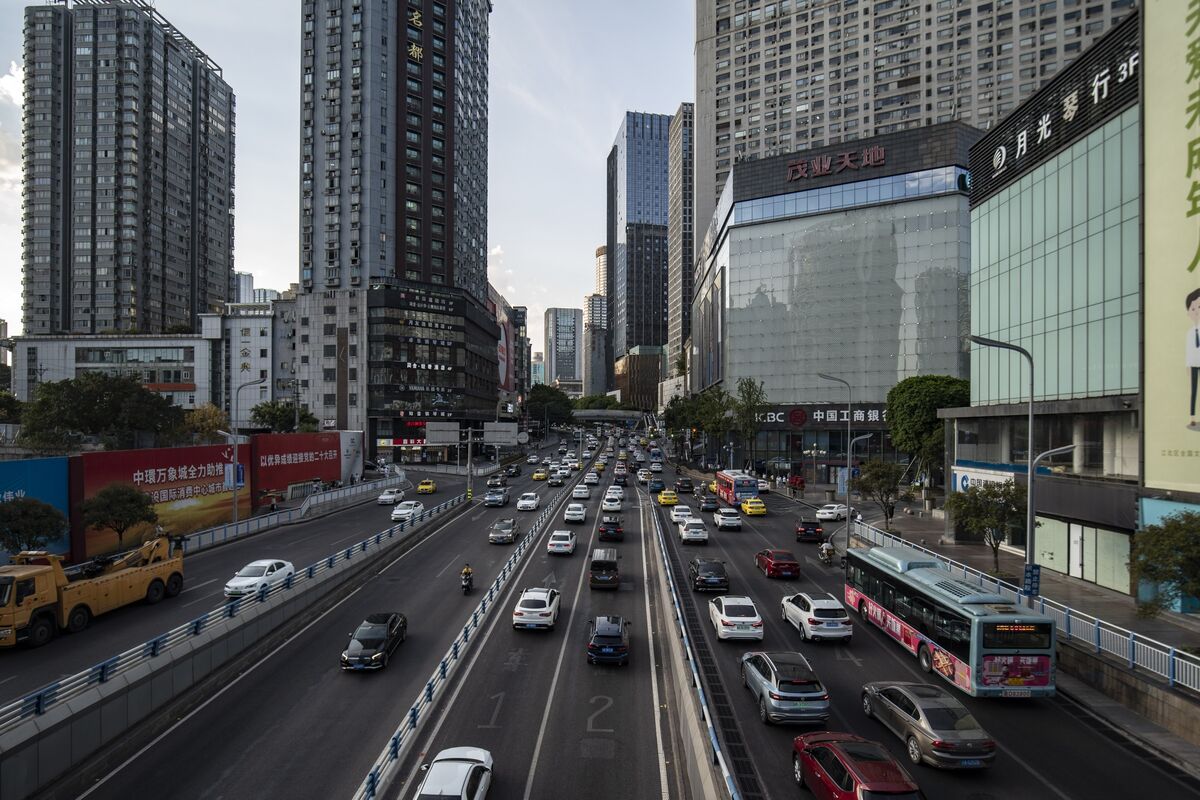Are BMW And Porsche's China Problems A Sign Of Broader Market Shifts?

Table of Contents
2. Analyzing BMW and Porsche's Specific Challenges in China:
2.1 Shifting Consumer Preferences: The Chinese automotive market is in constant flux, with consumer preferences evolving at an unprecedented pace. The rise of domestic electric vehicle (EV) brands is a major factor contributing to the difficulties faced by BMW and Porsche.
- Increased preference for domestic EVs: Chinese consumers, particularly younger generations, are increasingly showing a preference for homegrown EV brands like BYD, NIO, and Xpeng, drawn to their innovative technology, competitive pricing, and strong national branding.
- Changing brand loyalty among younger generations: Traditional luxury brand loyalty is weakening among younger Chinese consumers, who are more open to experimenting with new and emerging brands, both domestic and international.
- Impact of government incentives for domestic brands: Government subsidies and supportive policies for domestic EV manufacturers create a more competitive environment for established international players like BMW and Porsche.
2.2 Increased Competition from Domestic Automakers: The success of Chinese EV manufacturers poses a significant threat to established luxury brands. These domestic companies are not only producing high-quality vehicles, but also tailoring their offerings to the specific needs and preferences of the Chinese market.
- Competitive pricing strategies of domestic brands: Chinese EV makers often offer highly competitive pricing, undercutting the prices of established luxury brands and making their vehicles more accessible to a wider range of consumers.
- Superior technology in certain areas: In specific areas of technology, such as battery technology and autonomous driving features, some Chinese EV manufacturers are pushing boundaries and innovating at a faster pace.
- Focus on features tailored to Chinese consumers: Chinese brands demonstrate a strong understanding of local preferences, incorporating features and designs that resonate deeply with Chinese consumers. This localized approach is something international brands are still struggling to fully replicate.
2.3 Supply Chain Disruptions and Geopolitical Factors: Global supply chain disruptions and evolving geopolitical relations also play a significant role in impacting luxury car sales in China.
- Chip shortages: The ongoing global semiconductor chip shortage has hampered the production of vehicles across the industry, impacting both domestic and international brands.
- Import restrictions: Trade tensions and potential import restrictions can impact the availability and cost of imported vehicles, putting international luxury brands at a disadvantage.
- Trade wars and their influence on vehicle production and availability: Geopolitical instability and potential trade wars create uncertainty in the market, affecting production and impacting consumer confidence.
2. Broader Market Trends Indicated by BMW and Porsche's Experience:
2.1 The Rise of the Chinese Automotive Market: China's automotive market continues to be one of the largest and fastest-growing in the world. This rapid growth presents immense opportunities but also heightened competition.
- Statistics on market size and growth: China’s car market represents a significant portion of global automotive sales, and its continued growth holds immense implications for global automakers.
- Implications for global automakers: The Chinese market is no longer just an important export destination but a crucial battleground for securing future market share.
- Evolving regulations in China: China's increasingly stringent emissions regulations and the push towards electrification are forcing automakers to adapt rapidly.
2.2 The Global Electrification Trend and its Impact: The global shift towards electric vehicles is transforming the automotive landscape, and the luxury segment is no exception. China is at the forefront of this transition.
- Investment in EV infrastructure in China: China's significant investment in EV charging infrastructure is supporting the growth of the EV market and making electric cars more convenient for consumers.
- Government support for EV adoption: Government policies and incentives in China are accelerating the adoption of electric vehicles.
- Consumer adoption rate of EVs: Chinese consumers are embracing electric vehicles at a higher rate than many other markets.
2.3 Changing Consumer Behavior in the Luxury Market: Consumer expectations and purchasing behavior within the luxury segment are evolving globally, with the Chinese market showcasing these trends acutely.
- Emphasis on sustainability and social responsibility: Luxury consumers increasingly prioritize sustainability and ethical sourcing in their purchasing decisions.
- Increased demand for personalized experiences: Luxury customers expect highly personalized experiences, from vehicle customization to bespoke after-sales services.
- Digitalization of the car buying process: Online sales channels and digital experiences are becoming increasingly important in the luxury car market.
3. Conclusion: Is This a Temporary Blip or a Paradigm Shift?
The challenges faced by BMW and Porsche in China highlight the dynamic and evolving nature of the global automotive market. These difficulties are not solely confined to these two brands but reflect broader trends such as the rise of domestic Chinese automakers, the rapid adoption of electric vehicles, and shifts in consumer preferences. The long-term implications for luxury automakers are significant. Failure to adapt quickly enough to these changes could result in a substantial loss of market share.
To navigate this evolving landscape, it is crucial to follow the developments in BMW and Porsche's China strategies, analyze the evolving landscape of the Chinese luxury car market, and stay updated on the challenges and opportunities in the Chinese automotive market for luxury brands. The future of luxury car sales is undeniably intertwined with the success or failure of brands within this rapidly changing market.

Featured Posts
-
 Euro Millions Results Irish Players Win Big Winning Ticket Locations Revealed
May 28, 2025
Euro Millions Results Irish Players Win Big Winning Ticket Locations Revealed
May 28, 2025 -
 Final Nba 2 K25 Roster Update Increased Player Ratings Ahead Of Playoffs
May 28, 2025
Final Nba 2 K25 Roster Update Increased Player Ratings Ahead Of Playoffs
May 28, 2025 -
 Galaxy S25 256 Go A 699 90 E Une Bonne Affaire
May 28, 2025
Galaxy S25 256 Go A 699 90 E Une Bonne Affaire
May 28, 2025 -
 Is The Romance Over Hugh Jackman And Sutton Fosters Relationship Status
May 28, 2025
Is The Romance Over Hugh Jackman And Sutton Fosters Relationship Status
May 28, 2025 -
 Pacers Vs Knicks Game 2 Tyrese Haliburton Prop Bets And Predictions
May 28, 2025
Pacers Vs Knicks Game 2 Tyrese Haliburton Prop Bets And Predictions
May 28, 2025
